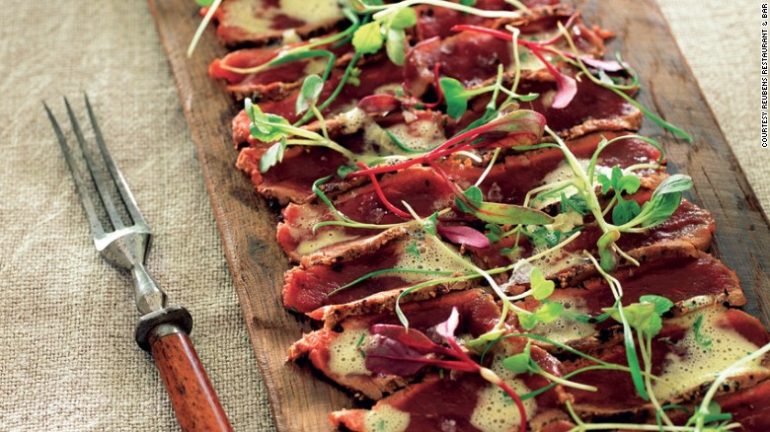A dab hand in the kitchen? Want to stay on top of your game? Then you’ll need to follow these top food bloggers, keeping the world up to date with the latest trends in African cuisine.
From recipes centuries old to those thought up only days ago, these culinary experts have the range and skills to cook up and document the continent’s most mouthwatering dishes.
You can thank us later.
Nigerian Lazy Chef
One more thing with rum and Sorrel i.e. zobo. Rice pudding! I ate so much of this pudding until my waist line said no more woman! As we go into the cooler months, this is a fantastic dish to keep warm. Need the recipe? Link is in bio. Sorry I have not posted any new recipe lately. I am battling my camera and my usb cord has now followed suit! GOD dey #f52grams #ricepudding #Nigerianlazychef #recipeontheblog #amateurphotography
A photo posted by nigerianlazychef.com (@nigerianlazychef) on
A self-declared “nerd,” Nma Okpara is Nigerian Lazy Chef, serving up — you guessed it — quick and easy Nigerian food.
The food is hearty, with stews and soups aplenty, all recorded with style and photographic panache.
Okpara unleashes her full food historian on certain recipes, urging her followers not to confuse or amalgamate different variations on dishes such as white soup — all part of her quest to “show Africa’s culinary culture and exotic cuisines alongside its wide variety of ethnic nationalities [and] cultures.”
Recent entry “Easy sorrel, coconut and rum rice pudding” deserves particular mention for being one of the prettiest desserts found anywhere on the foodie blogosphere, African cuisine or otherwise.
Aftrad Village Kitchen
A photo posted by Aftrad Village Kitchen (@aftradvillagekitchen) on
Great recipes? Check. Step-by-step guides? Naturally. Fully illustrated step-by-step guides? Even better.
Aftrad Village Kitchen’s no-nonsense blog is a lean, mean foodie machine, knocking up the best of Ghanaian cuisine on a weekly basis.
Run by an ex-pat living in London via Accra and Botswana, it’s all about helping “people connect with their African identity through food.”
Recipes span mains, desserts and sides; broad in their scope and often long in their ingredients lists. Special mentions go to street food dish Waakye and condiment Shito, Ghana’s ubiquitous Black Pepper Sauce.
Foodies buying the latter off the shelf, take note — there’s a lot more to it than you might think.
My African Food Map
No one can accuse My African Food Map of being unambitious. Blogger Tuleka Prah has set herself the monumental task (or should that be pleasure?) of bouncing around the continent a month at a time, documenting the best local recipes and producing short videos on each country.
Prah, who is a filmmaker, thought many online recipes lacked the style and flair needed to sell African cuisine to the digital market.
By photographing food properly, Prah believed she might “transport the flavor of the food to someone who doesn’t know what it is but might want to try it.”
So far Ghana, Kenya and South Africa have been thoroughly — and beautifully — covered. Expect more to come.
My Burnt Orange
A photo posted by Freedes (@myburntorange) on
Run by Freedes, a well-traveled Ghanaian ex-pat, My Burnt Orange’s “Afro Cosmopolitan” recipes have attracted the attention of food lovers with their lively fusion elements.Traditional dishes such as goat leg sit alongside biltong risotto as worlds collide on the dinner plate.
Freedes could never be classed as a shy food blogger, and video walkthroughs give plenty of insight as she guides you through cooking her take on dishes from all over the continent.
Take the tour!
Afrolems
Bringing pan-African dishes to the masses, with a a special focus on Nigerian recipes, Afrolems’ modus operandi is “to stylize African food so it can be internationalized.”
There’s plenty of substance to be found on their blog, with recipes as niche as they come.
Snail four ways? No problem.
Seasonal and celebratory dishes, particularly West African, are their staple, with some seriously lovely photography to boot, such as this mouth-watering bowl of Kedjenou from Ivory Coast.
Source: cnn.com










